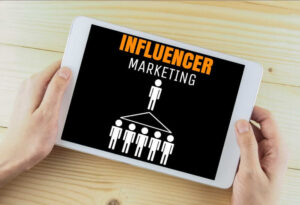In today’s rapidly evolving digital world, marketing agencies face the constant challenge of staying ahead of the curve. The rise of new technologies, changing consumer behaviors, and the increasing competition in the digital space demand innovative and adaptive strategies.
This article delves into the essence of modern marketing strategies, emphasizing the need for agencies to embrace change, harness new technologies, and prioritize creativity and customer experience.
Embracing Digital Transformation

Digital transformation is no longer a choice but a necessity for marketing agencies seeking to thrive in the digital age.
This transition involves a fundamental rethinking of how an agency uses technology, people, and processes to fundamentally change business performance. It’s about leveraging digital tools not just for the sake of technology, but to improve client engagement, campaign measurement, and content distribution.
Successful digital transformation examples include agencies that have integrated AI for predictive analytics, utilized AR/VR for immersive advertising, and employed advanced CRM systems for better customer relationship management.
Leveraging Data Analytics
In the realm of marketing, data is king. Data analytics allows agencies to unlock insights into consumer behavior, campaign performance, and market trends. This section delves into the methods of collecting, processing, and interpreting data to make informed marketing decisions.
From utilizing big data to understand consumer patterns to employing machine learning algorithms for predictive analytics, this segment explores various facets of data-driven marketing. Real-world examples will illustrate how agencies have used data analytics to tailor campaigns, enhance customer targeting, and ultimately drive better ROI for their clients.
Investing in Creative Talent

The heart of any successful marketing campaign lies in its creativity. This section argues for the prioritization of creative talent in both recruitment and team development. It discusses strategies to cultivate a work environment that fosters innovation and creative thinking.
From hiring diverse talent with unique perspectives to investing in ongoing training and creative workshops, this segment explores how agencies can nurture a culture of creativity. Real-life case studies will demonstrate how creative talent has led to groundbreaking campaigns, setting agencies apart in a crowded marketplace.
Integrating Advanced SEO Techniques
Search Engine Optimization (SEO) remains a cornerstone of digital marketing strategies, and in today’s competitive online landscape, businesses turn to agencies like EscortSEO to navigate the evolving SEO terrain.
This section delves into the latest in SEO strategies, going beyond the basics of keyword optimization to explore the nuances of user intent, voice search optimization, local SEO, and the increasing importance of AI in search algorithms.
It highlights the need for a comprehensive, holistic approach to SEO, one that encompasses not only on-page elements but also off-page factors like backlink profiles and social signals, and technical aspects such as site speed and mobile-friendliness.
The role of content in SEO, particularly in terms of its quality, relevance, and ability to engage users, is also examined. Real-world case studies will be presented to show how innovative SEO strategies have significantly improved search rankings and, as a result, organic traffic and conversion rates.
Focusing on Customer Experience

In today’s market, customer experience is paramount. This section discusses the shift from a product-centric to a customer-centric approach in marketing. It outlines strategies to enhance customer experience at every touchpoint, from initial awareness to post-purchase engagement.
Topics covered include personalization, customer journey mapping, and the use of technology to create seamless experiences. The impact of a superior customer experience on brand loyalty and advocacy is also highlighted, supported by examples of brands that have excelled in this area.
Adopting Agile Methodologies
Agility in marketing is about being flexible, responsive, and adaptive. This section introduces agile marketing as a method to quickly respond to changes in the market, consumer preferences, and emerging trends. It discusses the principles of agile marketing, including iterative development, cross-functional collaboration, and continuous improvement.
Practical tips for implementing agile practices in marketing teams will be provided, along with examples of how agility has enabled agencies to outperform competitors by rapidly adapting to new opportunities.
Harnessing the Power of Social Media

Social media has become a powerhouse in the marketing world. This section explores how agencies can effectively leverage social media platforms to engage audiences, build brand awareness, and drive conversions.
It covers strategies for creating compelling and shareable content, engaging with communities, and using analytics to measure the impact of social media campaigns. Examples of innovative social media campaigns will be analyzed to demonstrate the potential of these platforms in achieving marketing objectives.
Emphasizing Content Marketing
Content is the lifeblood of digital marketing, and an effective content marketing strategy is essential for any agency. This section examines how creating and distributing valuable, relevant, and consistent content can attract and retain a clearly defined audience.
It discusses various forms of content, from blog posts and whitepapers to videos and podcasts, and how each can be utilized to engage different segments of an audience. The importance of storytelling, brand voice, and content personalization is explored, alongside strategies for leveraging content across multiple platforms to maximize reach.
Additionally, the role of content in supporting other marketing efforts like SEO, social media marketing, and email marketing is highlighted. Examples of successful content marketing campaigns are analyzed to provide insights into best practices and innovative approaches.
Utilizing Influencer Marketing

The rise of influencer marketing represents a paradigm shift in how agencies can connect brands with consumers. This section discusses the strategy of collaborating with influencers – individuals with a significant following and authority in specific niches – to promote products or services.
The nuances of choosing the right influencers, aligning influencer campaigns with brand values, and measuring the impact of these collaborations are explored.
The segment also delves into the ethics of influencer marketing, the importance of authenticity, and the emerging trends in this space, such as micro-influencer partnerships and co-created content. Real-world examples will demonstrate how influencer marketing has been effectively utilized to increase brand visibility, engagement, and conversions.
Conclusion
The landscape of marketing is continually evolving, driven by changes in technology, consumer behavior, and the digital ecosystem. This comprehensive exploration of innovative strategies – from advanced SEO techniques and content marketing to influencer collaborations and emerging technologies – provides a blueprint for agencies looking to elevate their marketing game.
Related Posts:
- Digital Marketing Playbook: Strategies to Propel…
- Grow Your Brand: Digital Marketing Strategies to…
- Top 6 UK Film Location Agency 2024: Tips for Your…
- 12 Tips for Calculating the Right Digital Marketing…
- Strategies for Managing Your Social Media Presence…
- How to Apologize to Your Girlfriend and Strengthen…







